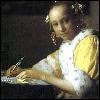 ARTE, the French-German channel, is often considered boring– Americans would say "high-brow"–by the crowd, or, at best, educational. Actually it's the way people, who never watch it, see it. They miss many interesting varied programmes and good old films, or more recent films that weren't necessarily blockbusters, I admit, but usually worth seeing. And once every 5 years there's a terrific programme that constitutes a true revelation and goes straight in the history of television. It often happens this time of the year, and it's often provided by Gérard Mordillat and Jérôme Prieur.
ARTE, the French-German channel, is often considered boring– Americans would say "high-brow"–by the crowd, or, at best, educational. Actually it's the way people, who never watch it, see it. They miss many interesting varied programmes and good old films, or more recent films that weren't necessarily blockbusters, I admit, but usually worth seeing. And once every 5 years there's a terrific programme that constitutes a true revelation and goes straight in the history of television. It often happens this time of the year, and it's often provided by Gérard Mordillat and Jérôme Prieur.This year it was a documentary series whose title L'Apocalypse could be seen as a mislead, but is actually relevant.
Several researchers (historians and theologians, Jewish, Catholics, Protestants, believers and atheists, whatever) from all over the world have contributed to that inquiry/explanation/exegesis in front of the camera, on the origins of Christian Church in the Roman Empire. The debate unfolds through the montage of the various speeches, but they basically talk to the camera, alone. There's a female voice-over to introduce a theme, a question, or make a transition but nothing else. The writers-directors never appear on screen. The approach is quite similar to the Corpus Christi series that aired 11 years ago (same writers-directors), which means it's scholastic and sober, severe even, but it's simply engrossing and fascinating. Corpus Christi was a success at the time and I'm sure that the dvds of L'Apocalypse already sell well. My point is that the audience can enjoy smart when you give them smart even when it doesn't look attractive nor entertaining.
Books talk to each others, so our researchers use several other sources to throw light on the Christian literature and articulate the demonstration; it isn't only a matter of exegesis for historical events are also examined to explain the beginning of Christianity.
The series begins with a study of the Book of Revelation, hence the title, and opens with the idea–actually it's a quote from Alfred Loisy and a leitmotiv throughout the series–that early Christians waited for the impending return of Christ but it's the Church that came. The writers of the series are no historians, their work isn't flawless, they may even be trapped in their own certainty and obsessions, unable to think "out of the box"for they don't see the box they are stuck in, but they make good and refreshing television; they do have a thesis since they built L'Apocalypse from the basic premise of a hiatus between the Jewish sect of Jesus followers and the institution that overcame in the Empire, and that thesis is conveyed by the voice-over, sometimes a bit heavily, but they let the scientists talk as they wish, which is the best part and makes the series gripping.
I've just seen the first episode, "La Synagogue de Satan"; I bought the dvds as my personal Christmas gift to myself; I loved it. It suggested very well how divided the first Christians were and that the New Testament is an unlikely collection of books that reveal the controversies of the time, the Canon having covered them up. I liked the idea that the Book of Revelation, written by John, followed a tendry Apocalyptic genre in Jewish literature, echoed the frustrations of many Jews after 70, and among them the frustration of those who believed in Jesus as the messiah and might have considered the others to be false jews(hence the phrase "synagogue of Satan"), but also gave away the competition between Jewish-Christians and Gentile-Christians, and might be, at the end of the day, a mere blistering attack against Paul and his followers.
The second isntallment goes back over the fire in Rome and the first persecution but I'm saving it for later, there's Doctor Who on the cable.
PS: Enluminure du commentaire de l'Apocalypse, Béatus El Escorial, 1ère moitié du Xème siècle, parce que la sans-dieu que je suis n'a pas oublié qu'elle était aussi médiéviste.


Aucun commentaire:
Enregistrer un commentaire